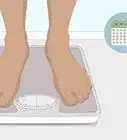This article was co-authored by Claudia Carberry, RD, MS. Claudia Carberry is a Registered Dietitian specializing in kidney transplants and counseling patients for weight loss at the University of Arkansas for Medical Sciences. She is a member of the Arkansas Academy of Nutrition and Dietetics. Claudia received her MS in Nutrition from the University of Tennessee Knoxville in 2010.
wikiHow marks an article as reader-approved once it receives enough positive feedback. In this case, 90% of readers who voted found the article helpful, earning it our reader-approved status.
This article has been viewed 314,295 times.
Carrying too much belly fat is a big problem for many people nowadays, especially once they hit middle age. Aside from being unsightly, belly fat is the most dangerous type of body fat to carry, as it indicates a higher level of visceral fat around the internal organs. Therefore, in order to lead a healthy lifestyle and feel happy in your body, it's necessary to take serious action to eliminate body fat.
Steps
Changing Your Diet
-
1Control your calorie intake. If you want to lose weight, you'll have to restrict your calorie intake - simple as that. Luckily, the belly is one of the first places to trim down once you start losing weight, so it is easier to shift than stubborn bum, thigh or arm fat.
- One pound of fat equals 3,500 calories. In other words, in order to lose one pound of fat per week, you will need to cut 3,500 calories from your weekly diet.
- You can lose 1 lb. per week by cutting 500 calories per day. For instance, reduce your calorie intake by 250 per day and burn 250 calories each day through exercise.
- Don't lie to yourself about your calorie intake. Keep track of every bite that passes your lips in a food diary or online calorie tracker.
- Eating a healthy diet and reducing your calories accounts for 80% of weight loss, so don't fool yourself into thinking that you can eat whatever you like as long as you exercise.
- A healthy goal is to lose between 1 and 2 pounds per week - any more than that is considered crash dieting and the weight loss will be nearly impossible to maintain.
- Depending on how overweight you are to begin with, women should eat between 1,500 and 2,000 calories per day in order to safely lose weight, while men should eat between 2,000 and 2,500.
-
2Eat more fiber. Eating more soluble fiber is essential for healthy weight loss. It helps to cut down on visceral fat, which is the potentially dangerous fat stored around vital organs such as the heart, lungs and liver. People who store fat in their bellies are more likely to have a higher percentage of visceral fat than those who don't.
- Breakfast is one of the easiest meals to incorporate more fiber into. Switch to eating high fiber cereals or oatmeal. Eat whole grain breads and bake muffins with wheat bran.
- Leave the skin on fruits and vegetables (such as apples, carrots and potatoes) as much as possible, as the skin contains the most fiber (in addition to the most vitamins and nutrients).
- Introduce more split peas, beans (black, kidney, pinto), and nuts (almonds, peanuts) into your diet, as these foods are all high in fiber.
Advertisement -
3Cut out sugar. Sugar is the enemy when it comes to fighting belly fat, as it's full of empty calories which provide no nutritional benefit whatsoever.
- When too much sugar is consumed, the body cannot burn it, so it's gets converted into fat and stored in places such as the belly, butt, thighs, and breasts.
- Naturally-occurring sugars, such as those found in fruit, are okay (in moderation), so it's really the added sugars you need to watch out for. These sugars are found in most packaged and processed foods, such as ready-to-eat cereals, candy, breads, and sodas.
- Watch out for many low- or non-fat products, which are actually very high in sugar. This is the case for many yogurts, cheeses, and sauces.
- Make sure to read the labels on any products you buy and look out for ingredients such as maltose, dextrose, ribose, xylose, lactose and sucrose - as these are all just misleading names for sugar.
- Stay away from anything that contains high fructose corn syrup - this is an artificial sweetener which is just as fattening (if not more fattening) than actual sugar.
-
4Eat more vegetables. Remember that losing weight doesn't mean you need to starve yourself - you can eat as much fruit and veg as you like. In fact, at mealtimes the majority of your plate should be filled with vegetables.
- Any protein you eat should be about the size of a deck of cards, while servings of carbohydrates should fit inside your palm. The rest of your plate should be filled with vegetables.
- Visually, filling your plate with vegetables will help to trick your brain into believing you're eating a large amount of food, which can help you to feel less deprived and prevent you from filling your plate with more rice, potatoes or meat instead.
-
5Eat more healthy fats. Surprisingly, eating more fat can actually help you to lose weight - but only if you eat the right kind and the right portions. All fat has 9 calories per gram so when you're trying to cut calories/lose weight, fat adds up quickly.
- Foods containing monounsaturated fatty acids (MUFA) are healthier than saturated fats. To consume more MUFAs, try to use more olive oil when you cook, eat more avocados, and choose small portions of nuts like walnuts and pine nuts as a snack.
- You should also eat more oily fish, which is an excellent source of Omega-3 fatty acids. Try cooking salmon, mackerel, trout, herring, and tuna.
- Stay away from trans-fats, such as those found in margarine and most processed foods, as these are bad fats which will prevent weight loss.
-
6Drink more water. Drinking water is very important when attempting to lose belly fat. Water flushes out the system, eliminating toxins and leaving you less bloated as a result.
- Water helps to regulate your metabolic rate, helping you to burn fat more efficiently. Drinking water helps to suppress your appetite, making you less likely to overeat at mealtimes. If you're ever tempted to eat something unhealthy, try drinking a glass of water instead!
- It's normally recommended that you drink eight 8-oz. glasses of water per day, though you may need more if you're doing lots of exercise, sweating a lot, or if it’s very hot outside. Instead of drinking coffee, try to kickstart your day with a cup of warm water and lemon.
- You can also increase your hydration levels by drinking more green tea, which contains antioxidants known as catechins.
Exercising
-
1Focus on cardio exercise. Rather than doing a ton of crunches and push-ups, cardiovascular exercise is the best thing you can do to burn calories and eliminate belly fat.
- However, rather than slogging at a steady pace on the treadmill, you should try to do interval training. Interval training involves integrating short bursts of high-intensity exercise into your daily workout.
- Try sprinting for 30 second intervals throughout your run, or set the elliptical, treadmill or exercise to interval mode in the gym.
- To trim belly fat, aim to do 30 minutes of high intensity cardio exercise at least four times per week.
-
2Introduce more activity to your daily life. Aside from the time you spend working out in the gym, it's a good idea to incorporate more activity into your everyday life - this way you can burn more calories without too much effort.
- Make some simple changes, such as taking the stairs or biking to work a couple of days a week. If you work a desk job, consider switching to a standing desk. Simply by standing instead of sitting for a couple of hours a day you will burn more calories.
- Take this as an opportunity to do some spring cleaning, to paint the house or fix up the garden - having a project to work on will help you to increase your activity levels without even realizing it!
- Also try to do active things purely for enjoyment - play soccer with your kids after school, take up a dance class, or spend a fun day at the beach.
-
3Do strength training. It's an excellent idea to incorporate some strength training into your weekly workouts. Strength training includes things like squats, deadlifts, bicep curls and leg presses.
- Although these exercises don't burn as many calories as cardio, they will benefit you in the long run. They will help you to build strength and muscle, which speeds up your metabolism and helps you to burn fat more easily, even at rest.
- Exercises like squats and deadlifts will also help you to build muscle around your core and keep your waistline trim. However, it's very important to have the correct form while performing these exercises, so if you've never done them before consider attending a class or enlisting the help of a personal trainer.
- Core work with weighted objects is an effective way to burn fat, and medicine balls or kettlebells work well for these kinds of exercises.
-
4Don't spend too much time on crunches or sit-ups. Many people falsely believe that doing hundreds of crunches will help to eliminate belly fat and give you tight, toned abs.
- However, it is impossible to "spot reduce" fat in this way, so any muscle you build will be hidden under the existing fat and possibly bulk you up even further.
- Therefore, it is a good idea to put the crunches and sit-ups on hold until you have lost your existing belly fat. Then, once you have lost the weight, you can work on toning your midsection.
- Instead of crunches and sit-ups, consider doing exercises that engage multiple muscle groups (not just your core) and which simultaneously work the cardiovascular system. Plank exercises are excellent for this.[1]
Making Lifestyle Changes
-
1Get enough sleep. Although it may be surprising, getting enough sleep is actually hugely important when it comes to getting rid of belly fat.
- When you're tired, your body produces more ghrelin, which is a hunger-inducing hormone that stimulates cravings for sugar and fatty foods.[2]
- In addition, lack of sleep messes with the production of other hormones, potentially leading to increased cortisol levels and insulin-sensitivity - both of which have been linked to belly fat.[3]
- Therefore, you should try to get at least 7 or 8 hours of good quality sleep a night. If you're having difficulty, try to cut down on caffeine and avoid watching TV or working on your laptop before bed - read a book or have a relaxing bath instead.[4]
-
2Reduce stress. Studies have shown that increased levels of cortisol (a hormone caused by stress) are linked with high levels of belly fat.[5]
- In addition, it is much easier to make poor food choices when you are stressed out, especially if you are extremely busy or tend to comfort eat.
- Therefore, it is important to reduce your stress levels in order to combat belly fat. Exercise can benefit hugely when it comes to stress reduction (and fat reduction), as can adequate sleep.
- You should also take some time for yourself to do things you enjoy. Read a book, go see a movie, or just spend more time with friends and family. Activities like meditation and yoga have also been found hugely beneficial in reducing stress.
-
3Limit alcohol consumption. Heavy or regular drinking is not conducive to a flat tummy. This is true for several reasons:
- Alcoholic drinks ( beer and cocktails in particular) are high in calories. Therefore, simply by grabbing a couple of drinks after work you could be significantly increasing your total calorie intake.
- Drinking alcohol puts excess pressure on your liver, which has to work overtime just to clear the toxins from your system. This takes energy away from other important bodily processes such as burning fat and building muscle.
- You don't need to give up alcohol altogether, but try to limit your drinking to a Friday or Saturday night, and never binge drink. It’s recommended that women consume 1 drink or less per day, and men consume 2 drinks or less per day.[6]
- One drink is equal to 5 oz beer, 12 oz wine, or 1.5 oz liquor.
Staying Motivated
-
1Remember why it's important to lose belly fat. If you're finding it hard to stay motivated, try to remind yourself of why losing belly fat is important for your health.
- People with high levels of belly fat are more likely to have increased levels of visceral fat, which is the fat that forms around important internal organs, like the heart, liver and lungs.
- Although visceral fat is not all bad (as it protects the organs), too much of it can produce harmful, toxic substances within the body and lead to an increased risk of heart disease, high blood pressure, type 2 diabetes, fatty liver disease, and certain cancers.
- Therefore, you shouldn't just lose belly fat in order to look better - you should do it because it is important for your overall health. In order to achieve minimal visceral fat, you should aim to have a waist measurement of less than 35 inches (88.9 cm) if you're a woman and less that 40 inches (101.6 cm) if you're a man.[7]
-
2Weigh yourself at the same time each day. If you're in the habit of constantly weighing yourself, it can be disheartening when you don't see any progress.
- However, weight can fluctuate quite a bit from day to day and even from hour to hour, depending on what you ate and when you had your last bowel movement. Therefore, it's important to standardize your weigh-in procedures in order to get a more accurate indication of your progress.
- Weigh yourself at the same time everyday - most people prefer to do it in the morning, before breakfast, as this is when your weight should be at it's lowest point. Some professionals recommend weighing yourself each day to stay aware of your weight.[8]
-
3Measure your progress. In addition to weighing yourself, it's a good idea to take measurements in order to track your progress. Sometimes, even if you haven't lost any pounds, you may have lost inches.
- Calculate your waist-to-hip ratio by measuring your waist (the thinnest part around your navel) and your hips (the widest part around your hip bone).
- Divide your waist measurement by your hip measurement in order to get your waist-to-hip ratio.
- A healthy waist-to-hip ratio for women is 0.8 or lower, while for men is is 0.9 or lower.[9]
-
4Take pictures. Another good way of tracking your progress is to take pictures of yourself. This can help you to get a more visual indication of your progress, thus helping you to stay motivated.
- Take pictures of yourself at the beginning of your weight loss journey, and at several milestones throughout. Take a picture from the front, from the back and from the side - having someone else take the pictures might be helpful.
- Take the pictures in your underwear, or in tight-fitting clothes, so you can really see your body shape. Stand up straight and gesture your posture, but don't try to suck your belly in as this is giving a false impression. Let it all hang out.
- Compare each photo you take with the original - you will be amazed with your progress.
-
5Lose weight with a friend. Staying motivated to lose weight can be very difficult, especially when everyone around you seems to eat whatever they like and sits in front of the TV instead of going to the gym in the evenings.
- If you can, enlist a friend or family member to go on your weight loss journey with you. A slight competitive spirit might be just what you need to get yourself in gear.
- Organize to go to the gym, or even go on walks together. Do your weekly weigh-ins together too - that way you will have someone to hold you accountable if you haven't hit your weight-loss goal!
How Can I Shrink My Stomach Without Exercising?
Expert Q&A
Did you know you can get expert answers for this article?
Unlock expert answers by supporting wikiHow
-
QuestionHow many calories are in a piece of chicken?
 Claudia Carberry, RD, MSClaudia Carberry is a Registered Dietitian specializing in kidney transplants and counseling patients for weight loss at the University of Arkansas for Medical Sciences. She is a member of the Arkansas Academy of Nutrition and Dietetics. Claudia received her MS in Nutrition from the University of Tennessee Knoxville in 2010.
Claudia Carberry, RD, MSClaudia Carberry is a Registered Dietitian specializing in kidney transplants and counseling patients for weight loss at the University of Arkansas for Medical Sciences. She is a member of the Arkansas Academy of Nutrition and Dietetics. Claudia received her MS in Nutrition from the University of Tennessee Knoxville in 2010.
Master's Degree, Nutrition, University of Tennessee Knoxville Master's Degree, Nutrition, University of Tennessee KnoxvilleExpert Answer
Master's Degree, Nutrition, University of Tennessee KnoxvilleExpert Answer -
QuestionHow do I exercise and get rid of my belly?
 Claudia Carberry, RD, MSClaudia Carberry is a Registered Dietitian specializing in kidney transplants and counseling patients for weight loss at the University of Arkansas for Medical Sciences. She is a member of the Arkansas Academy of Nutrition and Dietetics. Claudia received her MS in Nutrition from the University of Tennessee Knoxville in 2010.
Claudia Carberry, RD, MSClaudia Carberry is a Registered Dietitian specializing in kidney transplants and counseling patients for weight loss at the University of Arkansas for Medical Sciences. She is a member of the Arkansas Academy of Nutrition and Dietetics. Claudia received her MS in Nutrition from the University of Tennessee Knoxville in 2010.
Master's Degree, Nutrition, University of Tennessee Knoxville Master's Degree, Nutrition, University of Tennessee KnoxvilleExpert Answer
Master's Degree, Nutrition, University of Tennessee KnoxvilleExpert Answer
References
- ↑ http://www.shape.com/fitness/workouts/abs-workout-fastest-way-lose-belly-fat
- ↑ http://www.webmd.com/diet/features/your-hunger-hormones
- ↑ http://www.webmd.com/diet/features/your-hunger-hormones
- ↑ http://www.forbes.com/sites/jennifercohen/2012/03/27/6-ways-to-burn-your-belly-fat-fast/
- ↑ https://www.unm.edu/~lkravitz/Article%20folder/stresscortisol.html
- ↑ http://stronglifts.com/how-to-lose-belly-fat-fast-naturally/
- ↑ http://www.webmd.com/diet/features/the-truth-about-belly-fat
- ↑ https://www.usatoday.com/story/life/2016/01/03/weight-loss-scales-daily/77584478/
- ↑ http://www.bmi-calculator.net/waist-to-hip-ratio-calculator/waist-to-hip-ratio-chart.php
About This Article
To get rid of your belly, include more fiber in your diet, such as whole grain bread and pasta, or high-fiber cereals, to help combat fat stored around your organs. You should also try to limit your intake of added sugars in products like processed foods, cookies, and soda, since sugar contains calories that are turned into fat. For major meals, aim to eat plenty of vegetables, which give your body nutrients and cut down on carbs. Along with these dietary changes, try to do 30 minutes of cardiovascular exercise, like running or jogging, 4 times a week. If you can’t always exercise, try making lifestyle changes to make you more active, such as taking the stairs or biking to work. To learn more from our Dietary co-author, including how to choose foods with healthy fats, read on!
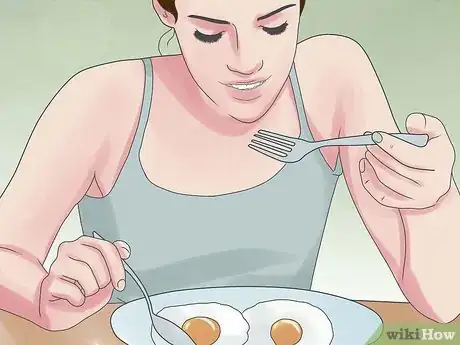
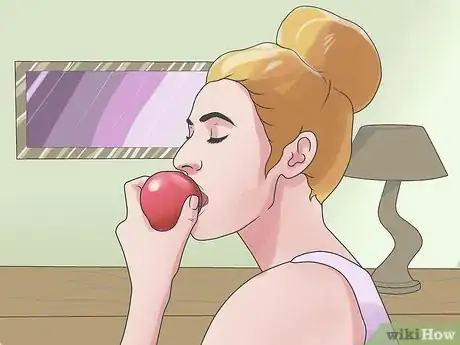
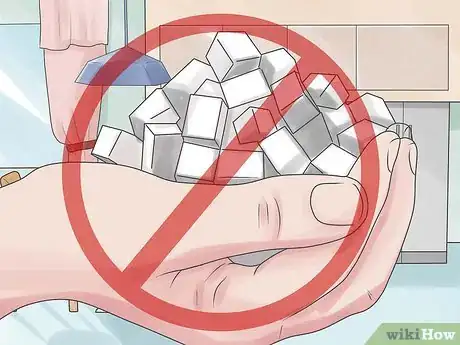
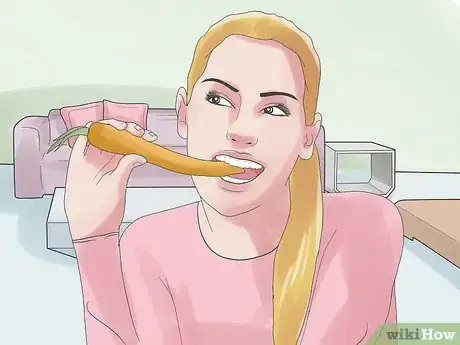
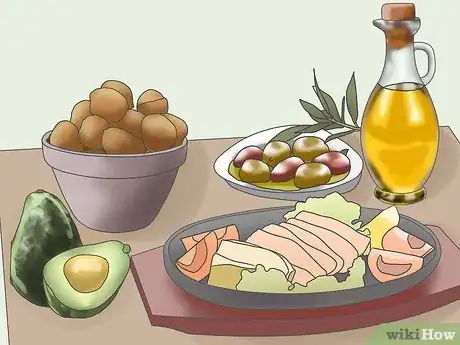
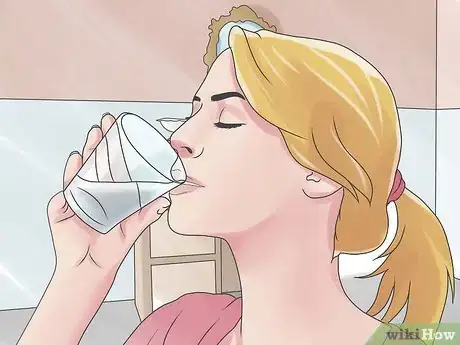
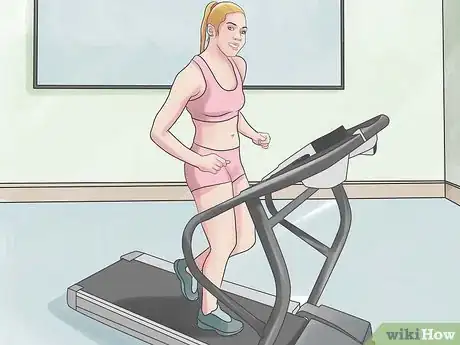
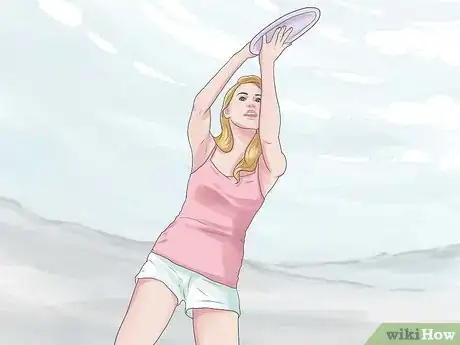
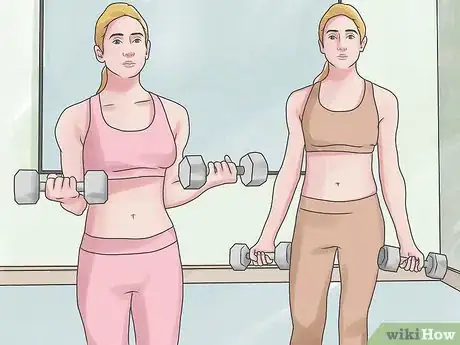
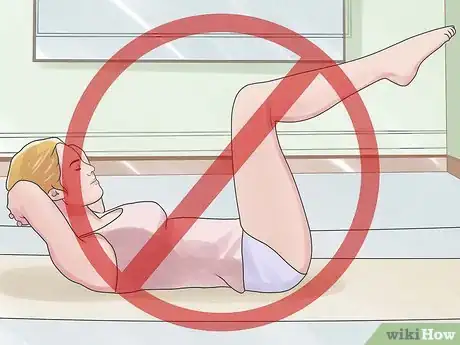
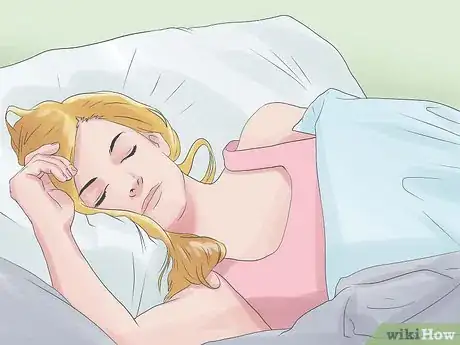
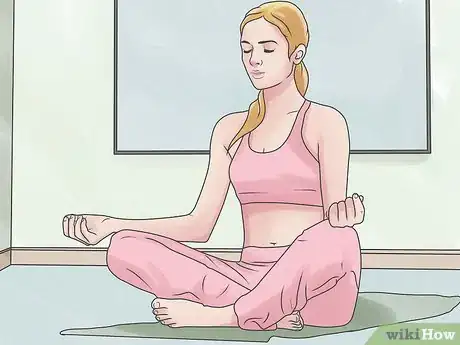
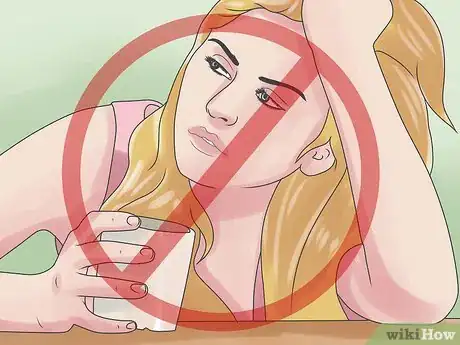
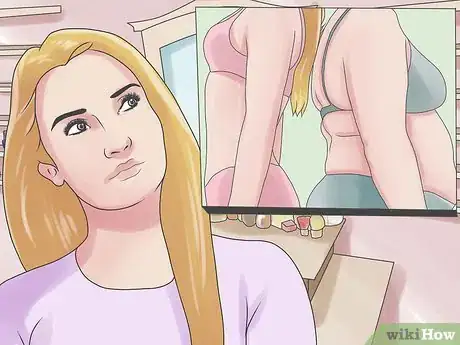
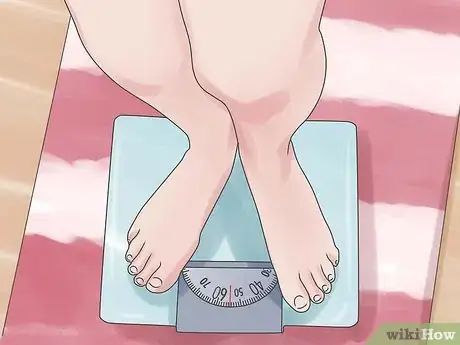
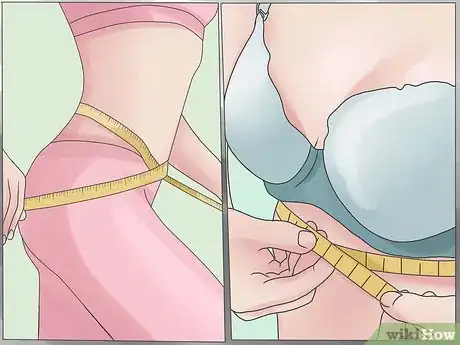
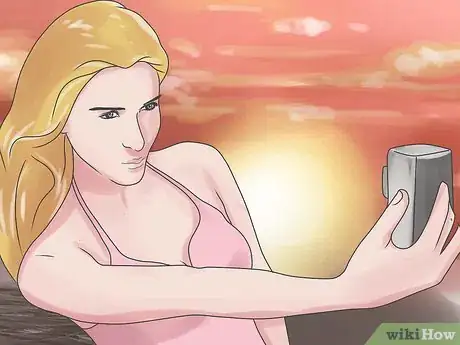
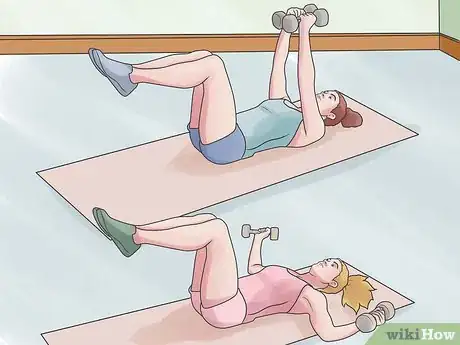
-Step-10.webp)


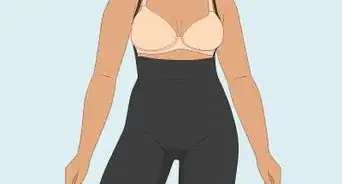
-Step-14.webp)
-Step-14.webp)
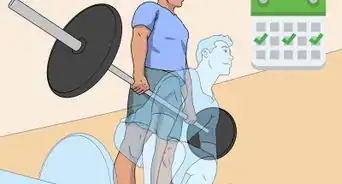
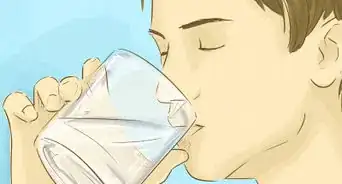

-Step-14-Version-3.webp)

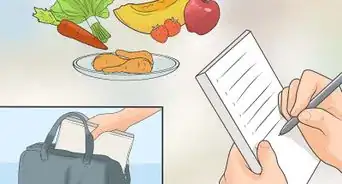












-Step-10.webp)

